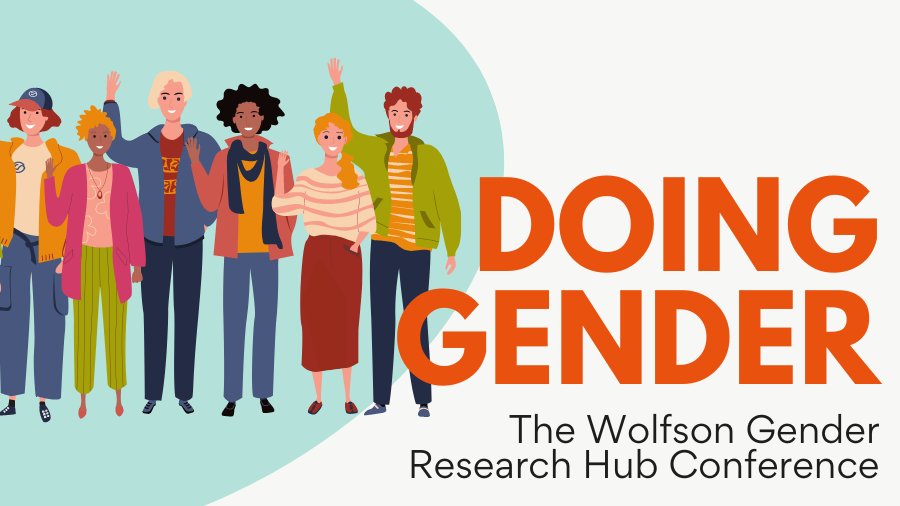How to rebuild a city with Karam Alkatlabe


“As someone pursuing a PhD in Physics,” says Dan Scott, “research on gender couldn’t be further from my direct academic discipline. But this is exactly why the Gender Research Hub is helpful for me".

Wolfson’s Gender Research Hub brings together Wolfson’s international community of Fellows, students, and alumni, and aims to create an open and active channel for discussions about gender-related research by College members. Dan, a former Wolfson College Students Association Secretary and Treasurer, has been involved for a few years now.
This month, however, Dan got more directly involved – taking on the role of Gender Hub Coordinator to help organise the Hub’s events.
Three days after he took the job, Dan had to help deliver his first event, ‘Doing Gender’ – which, it is hoped, will be the first instalment of an annual College conference during Women’s History Month.
Here, Dan gives his thoughts on the conference and why the Gender Hub is such a powerful instrument for change.
I’ve been involved with the Gender Hub for a few years now, attending its amazing events and finding out as much as I can about the latest research from Wolfson members and research from further afield.
I couldn’t have been happier to get more involved and start a new role helping the Hub deliver its inspiring events to Wolfson members. That said, helping to coordinate an event three days after I started was definitely jumping in at the deep end!
The “Doing Gender” conference earlier this month was nonetheless a really impactful event to start off with. The theme of ‘Doing Gender’ explores the notion that issues on gender permeate across disciplines and throughout all aspects of life.
Proposals for presentations were invited from across the College community from anyone with an interest in “doing gender”, regardless of whether or not gender had been the main focus of their academic or professional work. We had an exciting turnout of speakers and attendees, with many students, researchers, and Fellows showing up to get involved.
The conference was divided into three panels: Negotiating Gender, Gendering University Spaces, and Gender and Power.
The first panel, Negotiating Gender, included Dr Susan Larsen (Fellow and Senior Tutor), Sarah Corona (MPhil, 2022), Dr Zsófia Lóránd (Junior Research Fellow), and Dr Farhana Rahman (Junior Research Fellow). Their talks stimulated engaging discussions on a range of topics. What age or attribute separated “girls” from “women” in Imperial Russia? How much physical evidence is available to gain insight into the social structures of pre-historic societies? How do we find and identify a “good source” in literature when researching the history of women’s political thought where there may exist a deficiency of primary sources? How can we best support refugee women with programs and systems which are culturally familiar, and therefore accessible, to them?
These are big questions – and it was really fulfilling to see the conversations the presentations inspired at the tea break. The Chancellor’s Centre echoed with conversation as the participants spread between the first-floor balcony and the kitchen below. Some speakers flagged one another to delve further into a topic not covered in the discussion section, students chatted with their friends attending and introduced themselves to students they hadn’t met, and contacts were exchanged between students and speakers working on related research.
It was amazing to see all these new connections!
Abigail Wong (2022) and Simran Kaler (2022) spoke in the second panel, Gendering University Spaces. Both gave talks from different angles on the issue of sexual assault in universities, with particular focus on the challenges and flaws of reporting systems in Collegiate Universities such as Oxford and Cambridge.
Finally, the last panel, Gender and Power, featured Dr Anna Bagnoli (Fellow and Tutor) – presenting work done in conjunction with Professor Shireen Kanji (Brunel University London) – and Josephine Andresen (UCL & Univ. of Cambridge Judge Business School). The panel explored women in two spheres of power: business and politics. What barriers do women face in pursuit of leadership positions? How do they overcome these obstacles? How might some mechanisms for securing power as a woman be detrimental within the pursuit of gender equality?
As the event wrapped up, several participants lingered for almost a half hour past the scheduled conference end, too invested in conversation to cut things short. This is often where ideas are exchanged, pathways to solutions are created – and potential answers are offered for some of the big questions raised.
We were thrilled by the wide range of talks presented and the diversity among attendees at the conference demonstrating our College community’s broad interest in the topic of gender. The conference fostered many fruitful discussions, with energetic engagement from both speakers and attendees.
For me, it was a great start in my new role, and an example of how the Gender Hub can tackle tough questions – and actually make a difference.
The conference was led by Dr Celia Donert, Fellow; Dr Anjali Bhardwaj Datta, Fellow; and Hope Rohse (BA, 2021).







